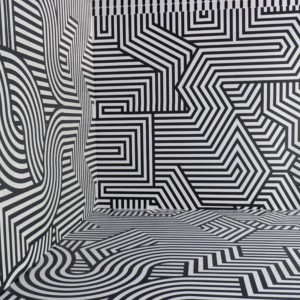Here is Mischa Foster Poole talking about his course Revolutionary Poetics: Writing Against the Grain; Alternate art; busting open the poem to embrace new and experimental forms.
(5) This is because the tools that we have to hand are provided by the hegemonic ideology, the mode of production that seeks to ideologically reproduce itself through the reproductive structures existing. To think outside of these structures is to reject common sense, is to propose what looks like nonsense.
(7) ‘New verbal form creates new content, and not the converse’.
(1) What is revolutionary poetics? Well, first it is not about content. I don’t think so. Not that there’s any harm in content, but it’s not the main thing. If a poem has a revolutionary message, that’s no good if it is attempting to carry it in what Wittgenstein called ‘the language game of giving information’. The poetics itself must be revolutionary, which is a question of form.
(4) Which is to say, ‘the master’s tools will never dismantle the master’s house’ (Audre Lorde). Which is to say, ‘the working class cannot simply lay hold of the ready-made state machinery, and wield it for its own purposes’ (Marx). The tools, the machinery, the forms that are most to hand are not to be trusted, but the ones which will prove revolutionary may be gathering dust in some corner of the workshop, or even not, as yet, imaginable.
(8) What should be avoided? What are the signs that one is sucking up to the hegemon, appeasing the common sense? Geoffrey Hill talks about the ‘poetry recital chortle’ – ‘most contemporary poems seem to me to be written in order to arouse the desire of the listener to chuckle appreciatively’. This may be a good place to start; if you are eliciting sounds of knowing satisfaction from a bourgeois-literary audience you are doing something wrong, from a revolutionary point of view.
(2) I’d go further, I’d say it’s not about making sense. Meaning happens, sure, it can’t help itself. A collaboration between the utterer, the auditor(s) and all the other co-conspirators who have made and are making and remaking language. But sense? In fact, too much sensemaking can be actively counterproductive, since what is sense but common sense, which is consensus, which is convention, which is counter-revolutionary.
(10) Startling the editor brings me on to the market. Let’s face it, you are never going to be properly remunerated for your labour as a poet. Yet you will constantly be cajoled into placating an imagined audience-marketplace. Let us not impose on ourselves the worst of both worlds! The market is the economic form of common sense. Let us stubbornly, implacably write against the market.
(9) A prominent poetry editor once told me that, when selecting poems for publication, they ‘don’t really like it when the words are all over the page for no good reason’. Comrades, we should always be striving to startle this editor! For what would be a ‘good reason’ for an aesthetic compositional choice? Is Stravinsky asked his reason for that F#? Is Seurat asked a good reason for that shade of russet? In art, choices and reasons are the same thing.
(11) Art, if it is any use at all, must be strange. It must be rough not smooth, as Shklovsky said. It must elicit the double-take, and stop us in our tracks. If it slips into our consciousness like just another bit of sense-data from our day, then it is not art, it is sense-data, it is habit, it is background. Music that isn’t rough is muzak. A painting that’s not rough might as well be a window. Many an unrough poem will pleasantly sail through your consciousness from the pages of X Magazine, from Y’s social media account, at Z poetry evening…
(6) So a poetics that does not push, formally, against a commonsense version of what a poem looks like (/reads like/sounds like/performs like) is not a revolutionary poetics. Yet we must also, whilst pushing the form to its limits, still ultimately hold on to something which makes it poetry—the language game of poetry, the poetic function—rather than, say, rhetoric. It is a difficult task. In my view, straying into the territory of the plastic arts, or dance say, may remain in the realm of poetry, whereas a MESSAGE risks straying out of poetry and into the language game of speechmaking, or anecdote.
(3) To employ a revolutionary form of language is to model a new way of thinking about things, and of engaging with and organising the world. ‘The limits of my language mean the limits of my world’ for Wittgenstein and so, as Veronica Forrest-Thomson develops it, ‘when language is re-imagined the world expands with it’.
Mischa Foster Poole is teaching the course Revolutionary Poetics: Writing Against the Grain 5 fortnightly Zoom sessions on Thursdays, 7–9pm (BST), starts 30 May 2024.

Add your Reply
You must be logged in to post a comment.